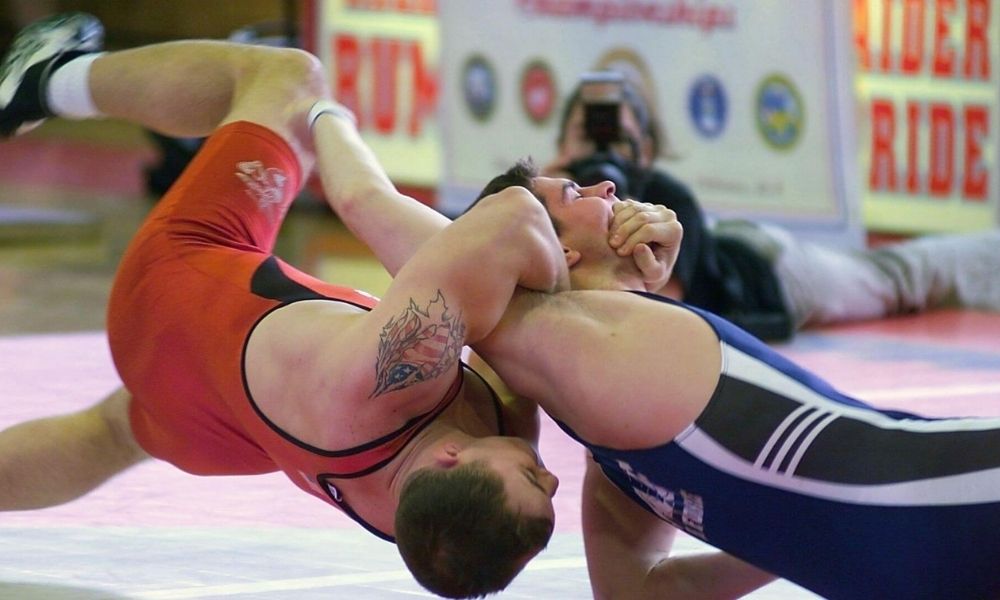Wrestling is a physically demanding and highly competitive sport that requires dedication, discipline, and hard work. For many young athletes, it is a dream to compete at the collegiate level and potentially earn a scholarship to help offset the cost of tuition. However, the question remains, can you get a wrestling scholarship? In this article, we will explore the world of wrestling scholarships and provide valuable insights for aspiring wrestlers.
Contents
The Landscape of Wrestling Scholarships
Before we dive into the specifics of wrestling scholarships, it is essential to understand the overall landscape of athletic scholarships in the United States. According to the National Collegiate Athletic Association (NCAA), there are over 460,000 student-athletes competing in 24 different sports at the Division I, II, and III levels. Out of these athletes, only a small percentage receive full or partial scholarships.
Wrestling is a Division I and II sport, meaning that these schools can offer athletic scholarships to their student-athletes. Division III schools do not offer athletic scholarships, but they may provide other forms of financial aid to their student-athletes.
According to the NCAA, there are 77 Division I wrestling programs and 64 Division II programs. This means that there are a total of 141 schools that can offer wrestling scholarships. However, not all of these schools have fully funded wrestling programs, and not all of them offer the maximum number of scholarships allowed by the NCAA.
Read:Can you ask colleges for more scholarship money?The Types of Wrestling Scholarships
There are two types of wrestling scholarships: full and partial. A full scholarship covers the cost of tuition, room and board, and other expenses such as books and fees. A partial scholarship covers a portion of these costs, and the student-athlete is responsible for covering the remaining expenses.
Full scholarships are rare in wrestling, and most student-athletes receive partial scholarships. According to the NCAA, the average scholarship amount for Division I wrestling is $8,700, and for Division II, it is $4,500. These amounts can vary depending on the school and the individual athlete’s abilities and achievements.
What Coaches Look for in Recruits
When it comes to recruiting for wrestling scholarships, coaches look for a combination of athletic ability, academic success, and character. They want to recruit student-athletes who not only excel on the mat but also in the classroom and in their personal lives.
Here are some of the key factors that coaches consider when evaluating potential recruits:
- Wrestling Ability: Coaches look for athletes who have a strong technical foundation, good physical strength and conditioning, and a competitive mindset. They also consider the athlete’s weight class and how they would fit into their team’s lineup.
- Academic Performance: While athletic ability is crucial, coaches also want to recruit student-athletes who excel academically. They want athletes who can handle the demands of being a student-athlete and maintain good grades.
- Character: Coaches want to recruit athletes who are hardworking, coachable, and have a positive attitude. They also look for athletes who are good teammates and have a strong work ethic.
- Competition Results: Coaches pay attention to an athlete’s competition results, including their record, wins against top-ranked opponents, and any state or national titles they may have won.
- Recommendations: Coaches may also consider recommendations from high school coaches, club coaches, and other individuals who can speak to the athlete’s character and abilities.
How to Increase Your Chances of Getting a Wrestling Scholarship
Now that we know what coaches look for in recruits, let’s explore some ways to increase your chances of getting a wrestling scholarship.
Read:Can you get a scholarship with a 3.5 gpa?1. Start Early
It is never too early to start thinking about college and the possibility of earning a wrestling scholarship. Many coaches start recruiting athletes as early as their freshman or sophomore year of high school. This means that you should start building your wrestling resume and reaching out to coaches as soon as possible.
2. Attend Wrestling Camps and Clinics
Attending wrestling camps and clinics is an excellent way to improve your skills, gain exposure, and get noticed by college coaches. These events often have college coaches in attendance, and it is an opportunity to showcase your abilities and make a good impression.
3. Participate in National Tournaments
Participating in national tournaments is another way to gain exposure and get noticed by college coaches. These tournaments attract top-ranked wrestlers from all over the country, and performing well can increase your chances of getting a scholarship.
4. Maintain Good Grades
As mentioned earlier, coaches also consider academic performance when recruiting student-athletes. Maintaining good grades and taking challenging courses can make you a more attractive recruit to coaches.
5. Create a Highlight Video
A highlight video is an excellent way to showcase your wrestling abilities to coaches who may not have the opportunity to see you compete in person. Make sure to include your best matches and highlight your strengths as a wrestler.
Read:Can you get a scholarship for rugby?6. Reach Out to Coaches
Don’t wait for coaches to come to you; take the initiative and reach out to them. Send them your highlight video, competition results, and academic information. Also, make sure to attend college wrestling events and introduce yourself to coaches in person.
The Importance of Academics
While wrestling ability is crucial, academics should not be overlooked when it comes to earning a scholarship. In fact, many coaches prioritize academic success when recruiting student-athletes. Not only does it show that the athlete is dedicated and hardworking, but it also ensures that they will be able to maintain their eligibility to compete.
Additionally, having good grades and test scores can open up opportunities for academic scholarships and other forms of financial aid, which can help offset the cost of tuition and other expenses.
Case Study: Kyle Snyder
Kyle Snyder is a perfect example of how hard work, dedication, and academic success can lead to a wrestling scholarship. Snyder is a two-time NCAA champion and Olympic gold medalist in wrestling. He attended Ohio State University on a full scholarship and graduated with a degree in finance.
Not only did Snyder excel on the mat, but he also maintained a 3.8 GPA and was a three-time Academic All-American. His academic success and athletic achievements earned him the prestigious Big Ten Medal of Honor, which is awarded to the top male and female student-athletes at each Big Ten school.
The Reality of Wrestling Scholarships
While earning a wrestling scholarship is a dream for many young athletes, the reality is that it is a highly competitive and challenging process. As mentioned earlier, only a small percentage of student-athletes receive full or partial scholarships, and the average scholarship amount is relatively low compared to other sports.
It is also essential to understand that wrestling scholarships are not guaranteed for all four years of college. Scholarships are typically awarded on a year-to-year basis and can be renewed or revoked based on the athlete’s performance and academic standing.
Furthermore, injuries can also impact a student-athlete’s ability to compete and maintain their scholarship. It is crucial to have a backup plan in case a scholarship is not renewed or an injury prevents the athlete from competing.
Conclusion:
In conclusion, while it is possible to get a wrestling scholarship, it is a highly competitive and challenging process. Coaches look for a combination of athletic ability, academic success, and character when recruiting student-athletes. To increase your chances of earning a scholarship, start early, attend camps and tournaments, maintain good grades, and reach out to coaches.
Remember that academics should not be overlooked, and having a backup plan is essential in case a scholarship is not renewed or an injury occurs. Ultimately, the most important thing is to continue working hard, both on and off the mat, and to never give up on your dreams of competing at the collegiate level.









